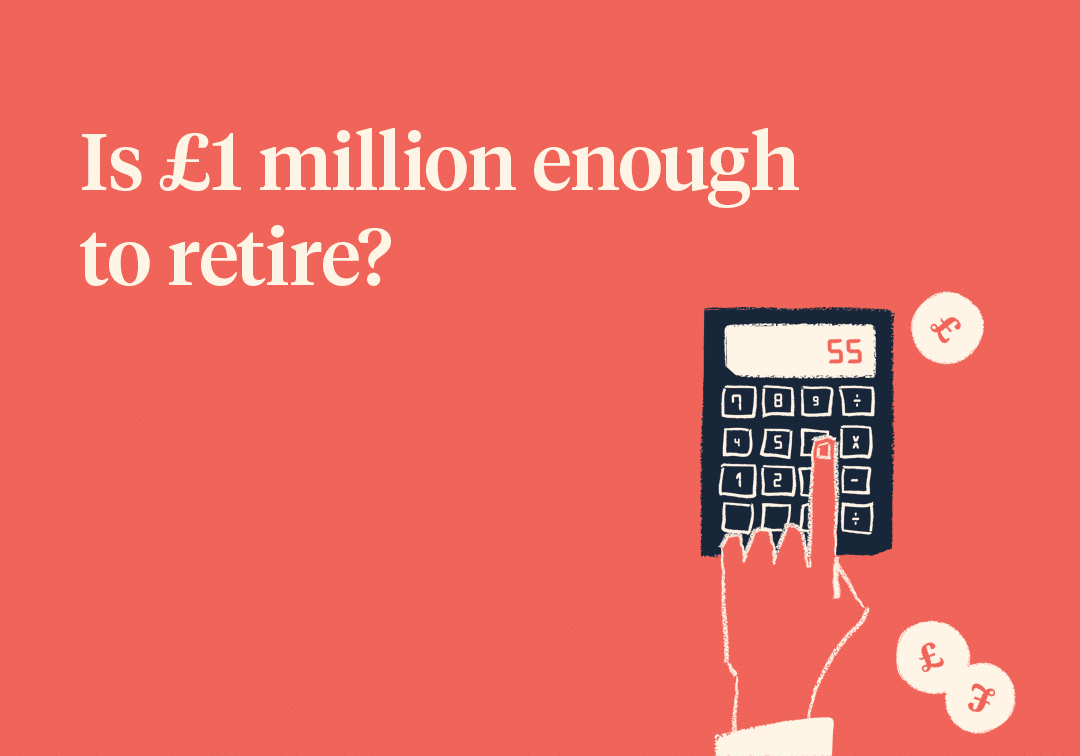If I were forced to take on a new guise as Mystic Meg, I would be comfortable placing a fifty-pound bet on it as a likely outcome. If it doesn’t make it into this budget, I’d be fairly surprised if we don’t at least see it over the course of this government. At the very minimum, the government is definitely coming for your pension: the question is simply how.
As I wrote in my article prior to the election summarising the manifestos, Labour repeatedly stated that there would be no increases to income tax, National Insurance, VAT, or corporation tax. However, they stayed completely silent on pension taxations, inheritance tax, and capital gains tax. Not even minor mentions relating to any of them appeared in a 136-page manifesto.[1]
There is a reason for this. As we know, the coffers are empty. The IFS were jumping up and down waving their hands around in dismay, telling us that all the parties were being unrealistic about their ability to pay for everything they desire. However, in the context of the cost-of-living crisis, it became politically unpalatable to tell people tax rises were coming too. The Director of the IFS, Paul Johnson, summed this up fairly comprehensively in the IFS’s analysis of the manifestos: “Low growth, high debt and high interest payments mean we need to do something quite rare just to stop debt spiralling ever upwards: we need to run primary surpluses. That means the government collecting more in tax and other revenues than it spends on everything apart from debt interest. Not necessarily a recipe for a happy electorate.”[2]
How much do you need to retire and more…

How much income do you need to be comfortable, how much do you need invested and how to pay less tax...
So, where might this tax that Paul speaks of come from, if it’s not the headline taxes? Well, you guessed it, probably all the other taxes they purposefully left out of the manifesto! It shouldn’t come as a surprise either. The ONS recently released figures showing that public net sector debt was 3.8% higher than at the end of July 2023 and remains at levels last seen in the early 1960s.[3] This will likely be a regular reference point in the budget announcement to underline the reasons for the rises. In addition, we have been thrown endless hints over the course of the year. “Tough decisions to come,” has featured repeatedly in Labour MPs’ commentary, the Treasury have directly noted upcoming “difficult decisions on tax and spending” and the Chancellor has outright told us that they “will have to increase taxes in the budget.” This then culminated in the Prime Minister’s recent ‘doomsday’ speech highlighting a £22 billion black hole in the public finances. Taxes going up in some form is a certainty.
So why am I mainly thinking about your pension? Well, as a pension geek, I thought it was the most interesting one to focus on as it likely has the most wide-reaching consequences. However, whilst this is the primary topic, I by no means believe IHT or CGT will escape the raid. The government have regularly hinted that CGT will be in the spotlight, in particular.[4] If you have been sitting on gains wondering what to do about them, you should speak to your adviser and seriously consider the pros and cons of realising these gains. The annual CGT allowance has been slashed already by the Conservatives and current rates are the lowest they’ve been since the 1980s.[5] CGT is firmly on the chopping block and it’s unlikely to come back down anytime soon. If you are waiting to crystallise gains, you should ask yourself what you are waiting for. CGT is essentially the price you pay to access money that has grown in a taxable environment. The current environment suggests that, by waiting, you are most likely waiting for one of two things: either for the cost of accessing your own money to go up or to die.
A flat rate on pension relief is perhaps on the more extreme end of the spectrum of potential actions that could be taken. The Chancellor has already ruled out the re-introduction of the recently abolished lifetime allowance due to the administrative and legal burden of doing so. There were three other areas we might have expected to see mentioned before changes to the main reliefs:
- Reversing the pension annual allowance rise (currently £60,000) to return it to £40,000 – this is at odds with Labour’s desire to retain senior doctors and consultants in the NHS but it’s unlikely to upset their core voter base.
- Removing the ability to pass on your pension tax-free – this would, I suspect, be unpopular. Our January Saltus Wealth Index showed that 70% of respondents wanted to see IHT halved overall, let alone seeing an effective increase. It remains a candidate, though.
- Reducing the level of tax-free cash available or changing the age when you could access it – this is a pretty popular relief, easy to understand and baked into every piece of legislation so, for me, this is the least likely.
Altering the income tax relief received is a major decision. It’s reversing a longstanding relief that has been in place for almost 40 years. Everyone is familiar with it and the Civil Service will seriously have their work cut out when it comes to effecting any change to it: how, for example, would salary sacrifice work and pay roll systems be altered to accommodate this? How would this be applied for the public sector where defined benefit pensions remain the primary solution? Regardless, the speculation is that it is the current firm favourite due to its ability to raise approximately £3 billion for the Treasury. Of course, there is an outside chance that the Chancellor could come knocking for all of the aforementioned.
Do you need help with your retirement planning?
Our specialists can help you prepare for retirement and provide ongoing advice once retirement has arrived. Get in touch to discuss how we can help you.

There are also many reasons why it makes sense to have some sort of flat rate. Typically, the tax system works by taxing those with the most money and either not taxing or providing support to those with the least. Pensions have always provided the opposite. The fact of the matter is that, currently, someone earning over six figures will receive a huge amount more tax relief than those earning the average UK wage or less when it comes to making pension contributions. The fact that £3 billion would be raised by this change also tells us another thing – higher rate and additional rate taxpayers are paying significantly more into their pensions than basic rate taxpayers. This might be obvious as they will have more disposable income to direct into their pensions. However, it’s for this reason that basic rate taxpayers need encouraging more than higher rate taxpayers to save into their pension. They may then be less likely to be reliant on the state when it comes to retirement. A flat 30% rate would achieve this. Basic rate taxpayers would, in essence, receive a 10% bonus from the government in addition to the 20% relief they are already given. This also has a helpful political angle – the rich pay more, whilst those with less receive a needed boost to their retirement savings. In effect, this would simply bring pension taxations in line with the majority of other taxes and reliefs in place.
There are a number of issues with this, though. Constant tinkering with pensions can make many sceptical about using them, despite the unparalleled effective returns you make from the tax relief (even at 30%!). Rachel Reeves is also hanging her hat on harnessing pensions to improve UK investment, having been in talks with Canada to consider replicating their superannuation approach.[6] It seems strange to look at bolstering growth via pensions with one hand, whilst potentially discouraging your largest contributors with the other. In addition, a flat 30% rate would hurt some of Labour’s core voter base – one in four teachers would be affected and only foundation year 1 and year 2 junior doctors can be certain of being basic rate taxpayers.[7] Once they are through those stages, the majority of junior doctors move into the higher rate tax band. The average salaries of registrars, consultants, senior midwives, GPs, and, as we are all now very familiar with, train drivers, are all well over the £50,270 basic rate band. Almost 40% of the police force also fall into this bracket.[8] By 2027, the IFS tells us one in five people will fall into the higher rate tax band. That’s a huge number of “ordinary working people” – quite a way off from the Robin Hood-esque political line that may accompany the policy.[9]
I am going to come out and say it, though. A flat rate of relief for pensions is a superb idea! We have got to encourage younger and lower earners to use their pensions more than we are. It also does seem odd that it operates in reverse to other taxes in terms of who it benefits. BUT, and it’s a big but, I would fix it at 40%. A 20% bonus for basic rate taxpayers on top of their existing relief might genuinely perk up their interest. This would bolster the potential for UK economic growth and reduce reliance on the state in the future. It would also mean that the most significant contributors to pensions won’t be discouraged, and the doctors, teachers, senior midwives and police officers can continue unaffected. In fact, around 98% of taxpayers would be content or happier. It would also align nicely with Rachel Reeve’s belief that increased pension investment can be tied to her growth ambitions for the country. Remember, the Chancellor believes that “pension funds can fire up the UK economy.”[10] Growing your way out of debt is a very viable way to reduce debt as a percentage of GDP. Yes, additional rate taxpayers would be affected and need to pay more tax but, for me, that is an acceptable trade-off for the benefits provided to basic rate taxpayers. It is more of a struggle to accept this trade-off at 30% and watch one in five people get walloped. However, growth takes time. In the short term, if the Chancellor chooses this option, then we’ll probably see significant hikes in CGT and IHT alongside others to quell Paul at the IFS.
Given the current tone, though, this is likely wishful thinking. The Government is hamstrung. They nailed into their manifesto a commitment not to tinker with headline taxes like income tax. Keir Starmer doubled down on this in his latest address from Number Ten. As a result, the shifts may need to be seismic when it comes to fringe taxes such as those relating to pensions and CGT. So, strap in, hold on tight and get ready: change is coming and it’s coming for your wallet.
Do you need help with your retirement planning?
Our specialists can help you prepare for retirement and provide ongoing advice once retirement has arrived. Get in touch to discuss how we can help you.

Article sources
Editorial policy
All authors have considerable industry expertise and specific knowledge on any given topic. All pieces are reviewed by an additional qualified financial specialist to ensure objectivity and accuracy to the best of our ability. All reviewer’s qualifications are from leading industry bodies. Where possible we use primary sources to support our work. These can include white papers, government sources and data, original reports and interviews or articles from other industry experts. We also reference research from other reputable financial planning and investment management firms where appropriate.
Saltus Financial Planning Ltd is authorised and regulated by the Financial Conduct Authority. Information is correct to the best of our understanding as at the date of publication. Nothing within this content is intended as, or can be relied upon, as financial advice. Capital is at risk. You may get back less than you invested. Tax rules may change and the value of tax reliefs depends on your individual circumstances.
About Saltus?
Find out more about our award-winning wealth management services…
Winner
Best Wealth Manager
Winner
Investment Performance: Cautious Portfolios
Winner
Top 100 Fund Selectors 2024
Winner
Best Places to Work 2024
£8bn+
assets under advice
20
years working with clients
350+
employees
97%
client retention rate



